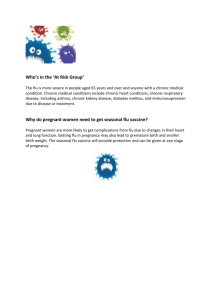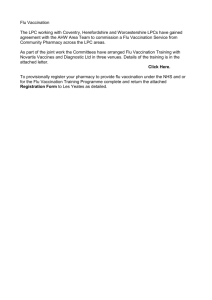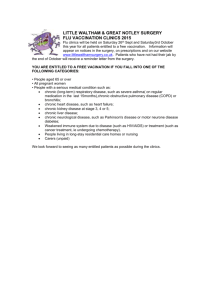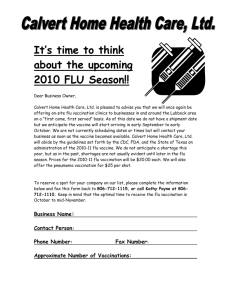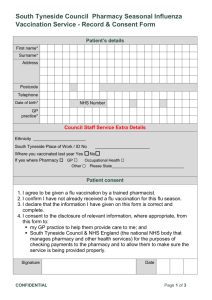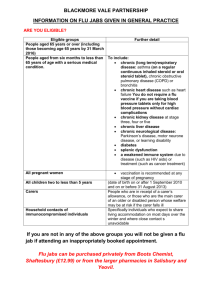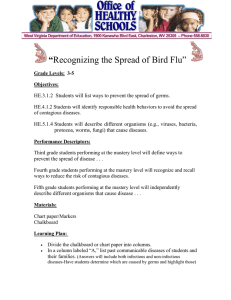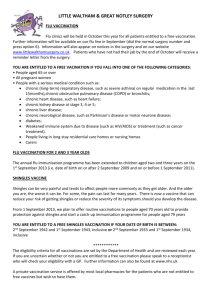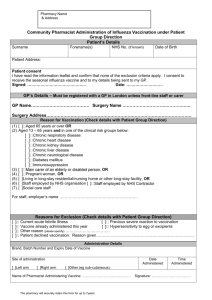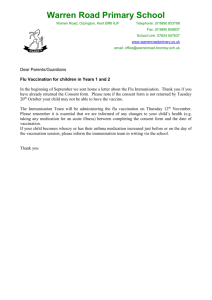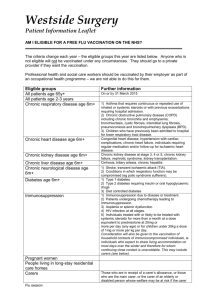Patient Participation Group Practice NewsletterOctober 2014
advertisement
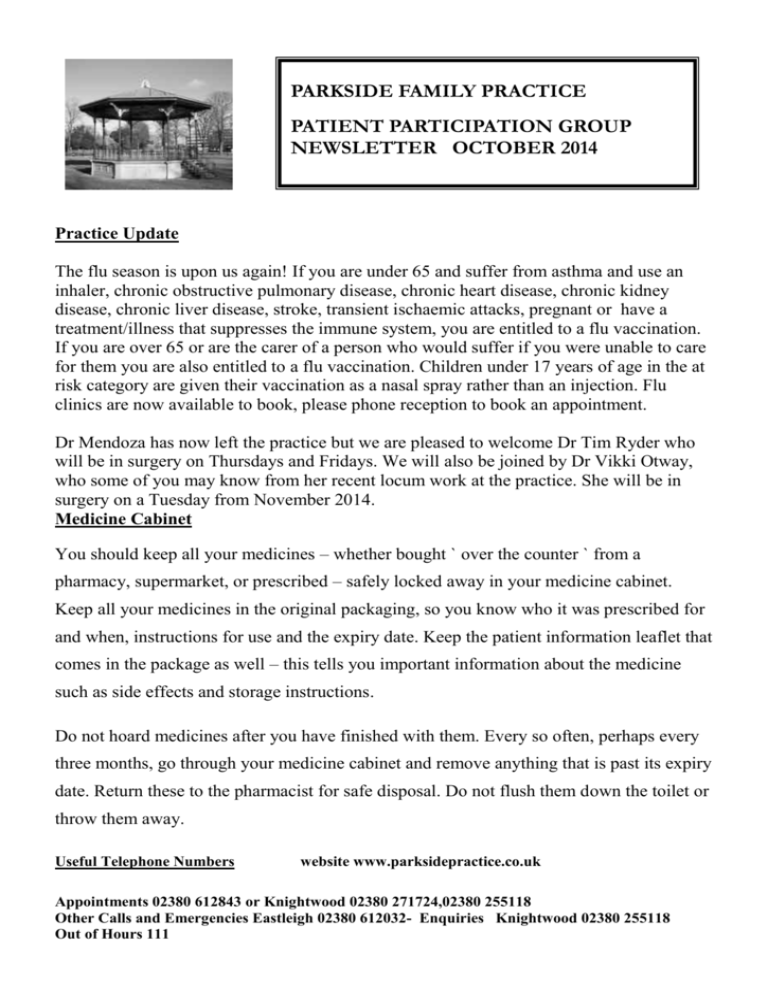
PARKSIDE FAMILY PRACTICE PATIENT PARTICIPATION GROUP NEWSLETTER OCTOBER 2014 September 2014 No.12 Practice Update The flu season is upon us again! If you are under 65 and suffer from asthma and use an inhaler, chronic obstructive pulmonary disease, chronic heart disease, chronic kidney disease, chronic liver disease, stroke, transient ischaemic attacks, pregnant or have a treatment/illness that suppresses the immune system, you are entitled to a flu vaccination. If you are over 65 or are the carer of a person who would suffer if you were unable to care for them you are also entitled to a flu vaccination. Children under 17 years of age in the at risk category are given their vaccination as a nasal spray rather than an injection. Flu clinics are now available to book, please phone reception to book an appointment. Dr Mendoza has now left the practice but we are pleased to welcome Dr Tim Ryder who will be in surgery on Thursdays and Fridays. We will also be joined by Dr Vikki Otway, who some of you may know from her recent locum work at the practice. She will be in surgery on a Tuesday from November 2014. Medicine Cabinet You should keep all your medicines – whether bought ` over the counter ` from a pharmacy, supermarket, or prescribed – safely locked away in your medicine cabinet. Keep all your medicines in the original packaging, so you know who it was prescribed for and when, instructions for use and the expiry date. Keep the patient information leaflet that comes in the package as well – this tells you important information about the medicine such as side effects and storage instructions. Do not hoard medicines after you have finished with them. Every so often, perhaps every three months, go through your medicine cabinet and remove anything that is past its expiry date. Return these to the pharmacist for safe disposal. Do not flush them down the toilet or throw them away. Useful Telephone Numbers website www.parksidepractice.co.uk Appointments 02380 612843 or Knightwood 02380 271724,02380 255118 Other Calls and Emergencies Eastleigh 02380 612032- Enquiries Knightwood 02380 255118 Out of Hours 111 Patient Group-.Hints & Tips to Help Keep Children Healthy-At School Teach young children about germs to help prevent the spread of illnesses. Frequently washing hands, especially before eating, can stop infections spreading. Hand sanitiser can be used as an alternative, but isn’t as effective as good hand washing. Make sure your child has a tissue at school to cough and sneeze into. Teach them not to share cups or cutlery Head lice can often be spread at school and are most common in children between the ages of 4 and 11, although anyone can catch them. They are spread by head to head contact. Head lice can be treated using a special fine tooth comb or medicated lotion or spray. Ask your pharmacist for recommendations. Give your children the fuel they need for the day by making sure they have eaten breakfast before leaving the house. It will also help concentration throughout the day. If you give your child a packed lunch, try to include a couple of their five-a-day with fruit, carrot sticks or fruit juice. If your children eat school meals, encourage them to make healthy choices. Walking to and from school is a great way for children to get some exercise and for you to teach the young ones how to cross the road safely and find safe crossing points .Stress can be an issue for school children of all ages, but particularly for young people studying for exams. Encourage them to study by giving them a quiet, comfortable area to work in at home. Help your child keep things in perspective and explain that feeling nervous before exams is natural. Beat stress by ensuring your child eats well and avoids sugary and caffeine-filled food and drinks as they will disrupt sleep patterns. Exercise can also relieve stress and help children sleep. Reward your child after the exams have finished with a special treat and celebrate all the hard work they have done. (source Care.uk)
